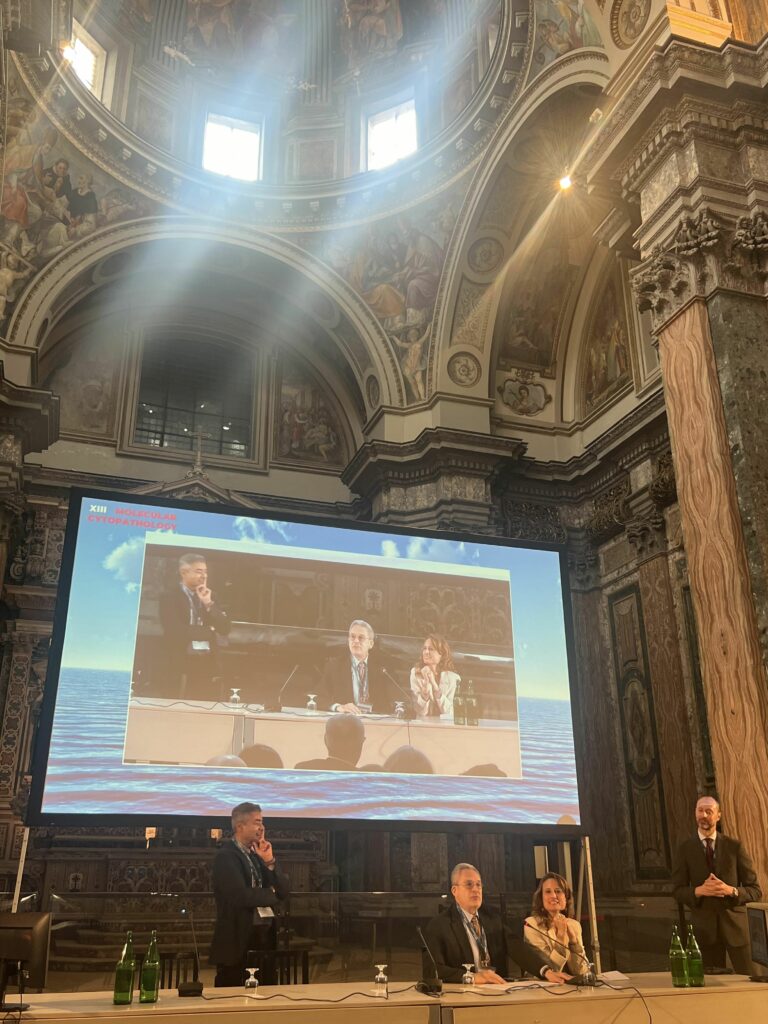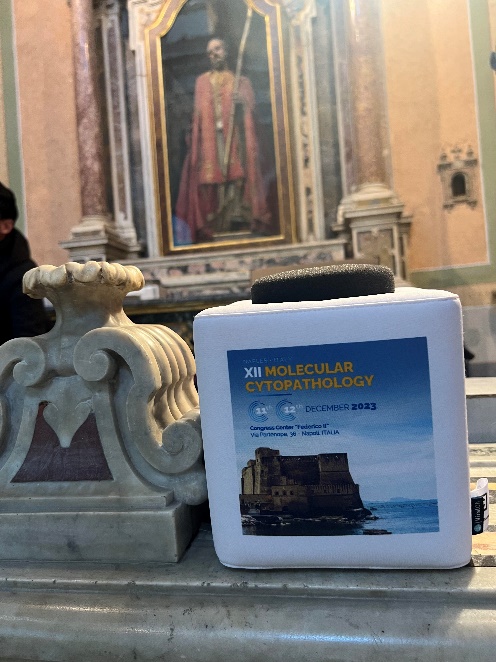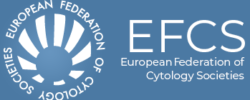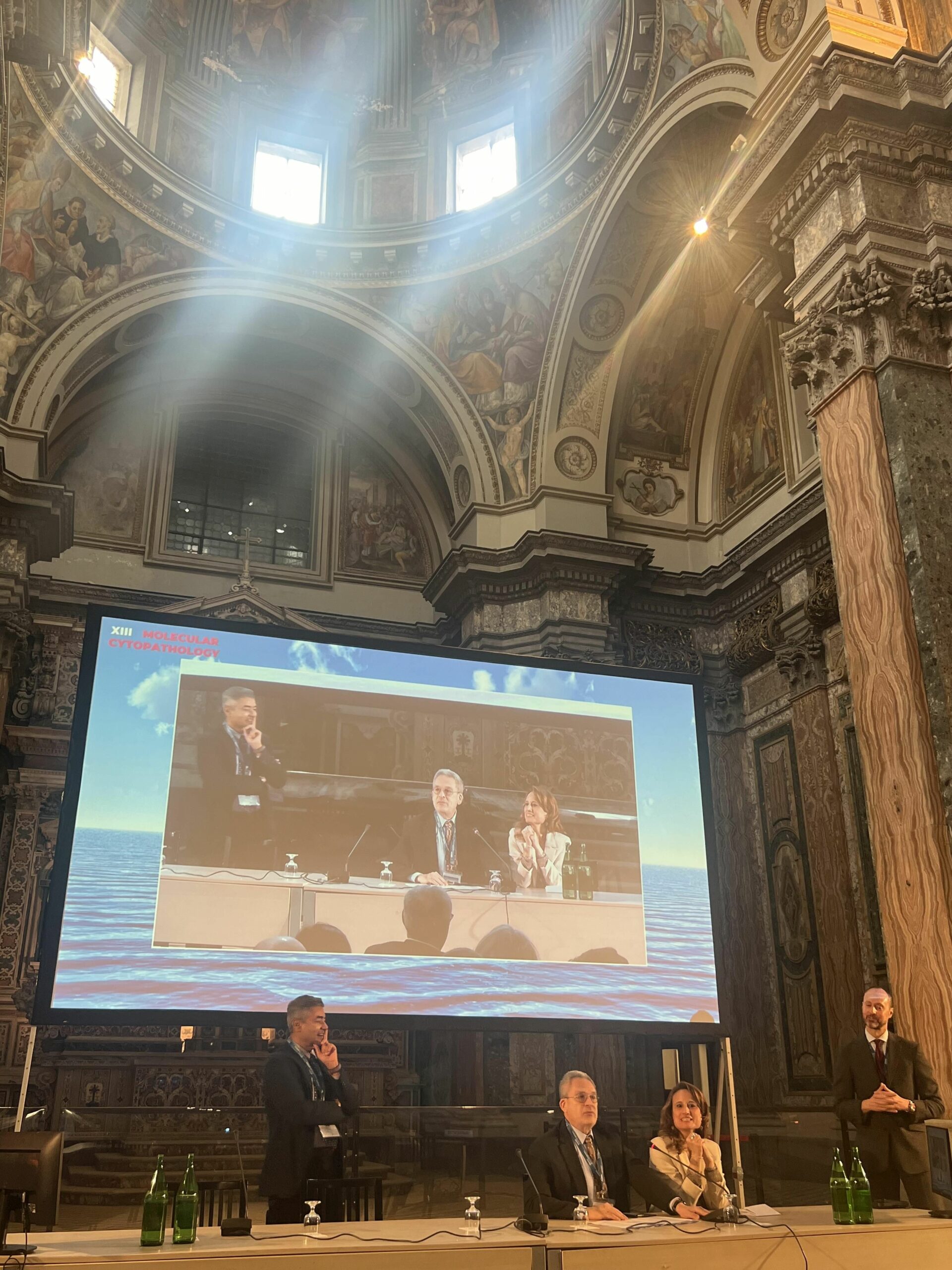9-10 December, 2024 – Naples, Italy
Dear reader,

In its 13th edition, in December 2024 and under the direction of Dr. Giancarlo Troncone, Head of the Department of Public Health, University of Naples Federico II, The Congress of Molecular Cytopathology was held for the first time in a majestic and imposing venue “Church of Saints Marcellinus and Festo”.
The convent building is the result of the union of two neighboring Basilian monasteries dating back to the early Middle Ages. With a Baroque architectural style, it has no waste and every angle is worthy of admiration. From the facade designed by Di Conforto and D’Apuzzo, at the beginning of the 17th century, passing through the dome of the Di Conforto, concluded in 1645, and the interior with a Latin cross plan, a single nave and six side chapels decorated with polychrome marble and carved wood.
This international event, besides being a product of collaboration between cytopathologists from Europe and the United States, provides the opportunity to share and exchange experiences and to learn from the path that others have already passed.
Cytology molecular techniques and testing have rapidly evolved over the years, not only for predictive or prognostic purposes but also for treatment. Due to this, molecular testing must be included in our routine daily practice in which the convergence of a multidisciplinary team (cytopathologists, clinicians: pneumologists, endocrinologists, oncologists, radiologists, among others, as well as technical personnel and molecular biologists), is also essential to obtain adequate and optimal results.
Small specimens are increasingly used for diagnostic and predictive biomarker testing. There is a wide variability in the sampling modality based not only in the clinical presentation and in the access ‘way to the lesion, but also on the infrastructure, logistic and financial particularities of each laboratory. Being the expertise of the clinicians and the cytotechnologists or cytopathologists to evaluate and judicious monetize the sample in the most effective and efficient way possible, an important factor.
Another particularity of this meeting has been the emphasis on the need to homogenize our nomenclatures and reporting systems. To establish quality criteria in all phases of the process, being the pre-analytical phase the one that has more impact on the results with entirely dedicated sessions to acquisition, handling/processing and storage (collection/ transport’s media and fixation) of samples in order to ensure nucleic acids’ preservation.
I n our daily practice, samples are subject to several uncontrolled, unknown and undocumented factors that may alter their molecular quality and composition and therefore the results. As for today, there are currently no requirements to control or record pre-analytical variables nor international guides to follow.

There is a need to properly evaluate sample processing and develop standardize recommendations for optimizing pre-analytical variables and ancillary testing in order to assure the quality and reliability of the analysis avoiding skew data.
This last congress edition, was mainly focused in two organs, thyroid and lung, it was structured in 9 sessions, distributed in two days, full of information, bibliography, experiences, new educational resources among many other things, providing an opportunity to obtain the necessary tools to improve the outcome for cancer patients worldwide based on a better pathology and molecular diagnosis.
With its very particular microphone, icon of the event, we are looking forward to the next edition later this year.
Cioly Rivero Colmenarez, MD, MIAC.
EFCS Residents and Young Cytopathologists Committee Co-chair.

